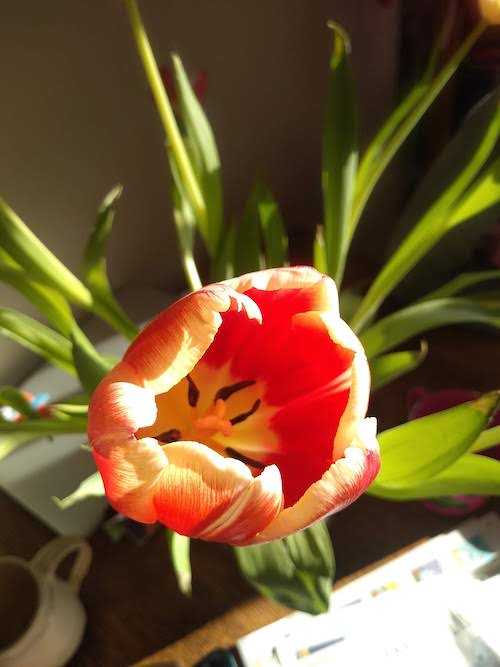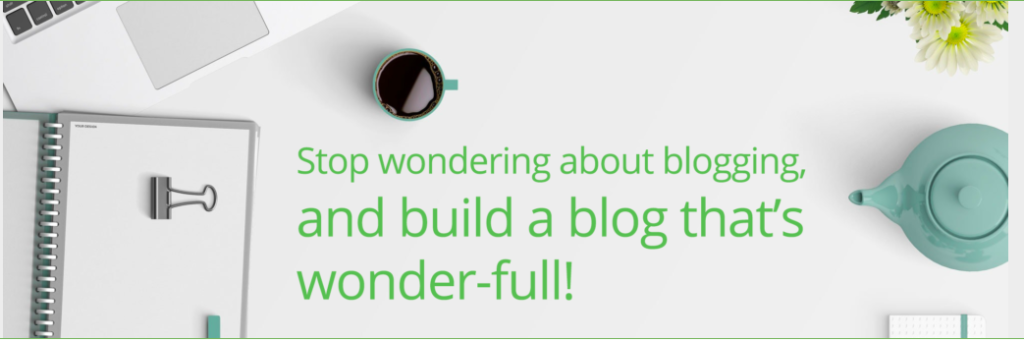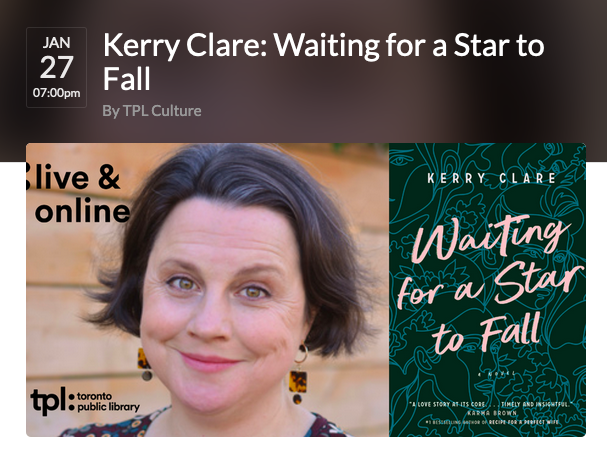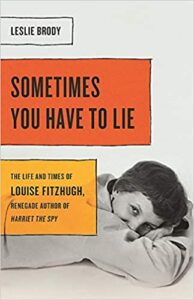February 9, 2021
Gleanings

- The International Tempest Over the World’s Most Famous Teapot
- i want to explore for a moment how important it feels to claim what is good in this time.
- The thing about still life is that even with it’s defined parameters, it’s such a huge field. The possibilities are endless.
- snowed under in a state of emergency.
- If you want to really revel in some winter reading, Tove Jansson is the author to seek out.
- When we danced to I’m Gonna Be (500 Miles) we managed to transform his room into a cèilidh, if only for a moment. But it was a moment, a happy moment.
- The world lost a hero this week, with the death of Captain Sir Tom Moore.
- My first approach to literature in the education system was through the grand novels, plays, essays and poetry of men.
- There are days when I live in the moment, as most of us do, and there are days when everything I do is in service to memory…
- I raise a glass to this part of me. This part of you. It’s play and curiosity stitched together with resilience.
Do you like reading good things online and want to make sure you don’t miss a “Gleanings” post? Then sign up to receive “Gleanings” delivered to your inbox each week(ish). And if you’ve read something excellent that you think we ought to check out, share the link in a comment below.
February 9, 2021
The Solution is Patience

The solution is patience.
Though not always.
Sometimes the solution is to rise up and make noise and stomp your feet and demand to be heard, and rally in support of others, and organize a potluck, and shake your fists, use your power.
But sometimes the solution is just to wait.
When the teacher hasn’t logged on to virtual school. When the vaccines are delayed. When technical glitches impede your progress. When you can’t find your hairbrush. When people are insufferable. When conspiracy theorists run rampant. When you’re feeling sad and like there’s no way out of that place. When it’s only February and you want it to be spring.
The solution is to breathe. To know the knot will untangle, and pulling on it now will only make the thing tighter. Instead, to be patient. Hunker down. Buy a cheap bouquet of tulips.
The solution is to put the kettle on, and brew a cup of tea.
February 5, 2021
Dizzy Righteousness

For a long time, quitting Twitter—for me— seemed about as possible or likely as quitting oxygen, even if the whole experience was so much less rewarding. I didn’t like Twitter (anymore—once upon a time it had been a source of friendship, inspiration and fun, but that all changed around 2014 or thereabouts) but it was necessary, it seemed. It was true there were things I knew from Twitter that were tremendously worthwhile. If not for Twitter, I might have travelled to the UK at year ago this March, but I was put off by disturbing tweet threads by Italian ICU doctors with perspectives that weren’t yet being reported in the newspaper. Twitter was how I found out about everything, from breaking news to pop culture scandals to political developments. It was the platform from which I interfaced with so much of the world…and then it began to occur to me that this was the problem. That while the world was difficult, Twitter only made it worse.
There was a reason that I quit Twitter, finally, but now I can’t even remember what it was, and perhaps this is the point. When I finally logged back onto Twitter a few weeks after my first break—I still have an account but check it every 60 days instead of 60 times a day, which is a big shift for me—Scott Baio was trending for arranging mugs in a department store, and that really just clinched it, because what if I’d never found out that had happened? What else could I have done with those brain cells?
I had spent the last three years on Twitter being furious, mainly about our provincial government and various terrible things they’d done, and while I found solidarity and community with other people who felt the same on the platform, the platform for practical purposes wasn’t useful to me. All my online fury actually gave me a peculiar sympathy for the kind of person who gets radicalized through online groups and decides to drive his truck from Manitoba to Ottawa to smash into the gates at the entrance of the Prime Minister’s residence. Because online rage is a self-perpetuating spiral, and spitting one’s feelings into the online void only underlines how impotent most of us really are, and that only makes you angrier (and the cycle begins again). My furious responses to the Minister of Education’s tweets were not useful to me, nor him or anybody, and it wasn’t like he was even reading them. This performance could not be more similar (or futile) than screaming into the wind. The only entity that profited was the social media platform because it seemed I couldn’t quit it.
Sometime last summer I began to insist that I could no longer view our government as an adversary. Which is not to say that our government was not an adversary, but this arrangement was making me irate and unhappy, and it didn’t make anything better. Further, my children were to be heading back to school in September, and I really decided that having some trust in the system was necessary for me to be a functioning citizen. Like, I’d rather trust and be wrong than end being that guy in a tinfoil hat. And I realized too that my online interactions were so much of the reason why I was angry all the time. That normal people didn’t necessary function this way, and maybe there was something more targeted and effective I could do with my energy than be constantly furious or full of anxiety, waiting for the next calamity to come across the timeline. And that if I just decided not to be furious all the time about the government, flicked it off with a switch, would that make an iota of difference to how the government functioned? It wouldn’t make anything better, but it also wouldn’t be worse.
“I feel like everybody on social media is always yelling at me,” I said the other night to one adult person I spend all of my time with these days. Trying to articulate just what it was that was making me uncomfortable—not just with Twitter, but the Facebook and even Instagram with its weird powerpoint social justice stories. I can’t stand them. “And it’s not that I don’t care about social justice,” I continued, but I am beginning to think of “social justice” as an abstract principle as an ambition that’s also vague and vast. I am still really tired of social justice memes and wish that people would write their own stories, feel their own feelings, share their own ideas instead of parroting somebody else’s.
This is not an “everybody on the left is brainwashed, it’s a cult, cancel culture, blah blah” kind of post. I still stand by guiding principle that one should never do anything for which Jonathan Kay or his mother might leap to their defence. A lot of people who’ve spent less time online than I have imagine themselves bravely rallying for free speech, due process, and against slippery slops, and they don’t know that they’re being manipulated by so many bad-faith actors. I’m not “just asking questions” or wondering if political correctness has gone too far. And I am definitely not saying “Goodbye to All That” to “the church of social justice” (as one viral essay once put it), or talking about “both sides.” I know what side I am on, and it’s the side of anti-racism, alleviating poverty, supporting marginalized people, lifting up the oppressed, supporting workers’ rights and helping make the world a safer, more gentler place for weirdos to be who they are. But I just have recently become dissuaded of the notion that social media is the place to make all this happen. (Blogs, on the other hand…) Considering that there are other ways to be engaged. That perhaps what social media is isn’t even actually engagement.
David Roth’s “The March of the American Kooks” is one of the most interesting, succinct and illuminating pieces I’ve read about the lunacy of American politics at this moment, articulating so much of what I was trying to get at as I rambled on about everybody yelling at me on the internet. And there is no doubt that the far-right fringes have become a clear and present, violent danger. When there are people marching in the streets with literal Nazi flags, and you’re still going on about “antifa,” I think you’ve missed the point, or you’ve been watching the wrong television channels. I am still confused about how after Nazis went marching in Charlottesville in 2017, perfectly reasonable people wanted to remind us that the left has its extremism too. January 6, 2021, my dudes. This is what comes of both-sidesing. The threat and danger is clearly situated along one specific branch of the political spectrum, full stop.
But part of the reason it’s especially threatening and dangerous is that “dizzy righteousness of derangement” which stretches right across the board, that is not just specific to conspiracy theorist kooks. Which makes it difficult to turn vast and vague ambitions into anything tangible beyond clicks. Fed by social media platforms designed to stoke our rage (Elamin Abdelmahmoud writes about this here), we’ve all bought into this idea that righteous online fury is the way to the change the world—but I think we’re being played. This notion has given us nothing substantial or useful to meet the moment—and its clear and present danger—with. It’s also profoundly uninteresting.
From Roth’s essay: “The politics these people profess is not about helping anyone, lord knows, or really about any kind of ideological program at all. It is about an obsessive and even loving taxonomy of and fixation upon enemies and problems, and the way it works is through relentlessness, and through a refusal to ever stop performing weird arias of anger and umbrage.”
The outcomes are different, and perhaps so too are the extremes, but the symptoms are the same, and I’m done with it. When you can see yourself in an article about a bunch of conspiracy Q-uacks, it’s time to close the browser, turn the page.
February 4, 2021
Things to Read During the Big Game

One of my favourite things about how my life turned out is that I married somebody who cares about sports even less than I do, which means that I got to give him the big news that there was some kind of sports event this weekend, which I only know about because I keep receiving e-newsletters from food bloggers with subject heading GAME DAY EATS. (I was actually only able to parse out what the game in question was because I’d heard about the poet who was scheduled for the halftime show.)
And I honestly felt like perhaps I was the only blogger on earth whose content wasn’t Superbowl-adjacent (it IS the Superbowl, right? And Superbowl is a compound word? Or is it Super Bowl? I don’t know. I am going to choose to remain in ignorance. At least I know it’s about football, by which I mean the oblong, brown American kind, and so I’m feeling a little bit savvy.) Just because I don’t actually care about sports doesn’t mean I don’t want to be part of the action.
And so that end, I have put together a list of some of my favourite game-day literary experiences, books that are perfect to get lost in and you don’t even have to worry about the score.
February 3, 2021
And This is the Cure, by Annette Lapointe
So you could pitch it like this: imagine every Miram Toews book you have ever read—A Complicated Kindness, Irma Voth, The Flying Troutmans, All My Puny Sorrows, Women Talking, Summer of My Amazing Luck, Swing Low, I mean everything—all packed together in a single volume. Which is only misleading, because it makes it sound derivative, which it isn’t. So how about this instead: former cult member turned riot grrrl writes a tell-all memoir and finds fame as house of a Canadian broadcasting culture flagship pop culture radio show after its former host (a noted sexual predator) flames out in disgrace, but then her past life comes back to haunt her when her ex-husband is murdered and her estranged 11 year-old daughter is returned to her care, which means she’s forced to confront her ex’s conservative, religious family and their disdain for her, all the while she’s trying to stay on her meds and keep as stable as possible as she avoids confronting the trauma buried in her past, which does not necessary lie where she thinks it does…and then her band goes on tour in Japan.
And This is the Cure is the third novel by Annette Lapointe, whose first book Stolen was nominated for the Scotiabank Giller Prize in 2006. I also really appreciated her second White Tail Shooting Gallery in 2013, writing in a blog post that the book, “baffled me throughout, disturbed and troubled me, but it also intrigued me, continually surprised me, never stopped me wondering what would happen next…” And the same stands for her latest, which I loved. A book that ostensibly should be too much—how can a person fit so many things into a single novel?—but which works, is eminently readable. Mostly because of Allison Winter, Lapointe’s stunning fictional creation, a woman who is shattered and still standing, flawed and perfect, terrified and brave, smart and ridiculous, loving and fierce, damaged and whole, missing and present. A singular creation: regarding her daughter as a baby, she says, “I’d happily have killed things for her, but I would have preferred her to stay at home, in someone else’s custody, while I did it… I’d have made a decent, if absent, father.”
She’s the trickiest narrator, withholding information about her story until the present drags it out of her. She’s also unapologetic with a ferocity that never wavers, and I love that. Her unreliability turns the novel into the most fascinating, many-sided shape, but her perspective is still a steady one, the compass point that guides the reader through so much stuff. A lesser writer would have had this whole book come off its rails, but Lapointe nails it, unbelievably. I loved it.
February 2, 2021
Gleanings

- And of everything I’ve watched, Minari might be the best thing I’ve seen all pandemic.
- Such criticisms are reminiscent of the kind Wheatley was subjected to and more recently, takedowns of other Black women poets blocked from the mainstream literary canon, too numerous to list.
- Who knew that eggs in cakes were sometimes a …hindrance? Definitely not me.
- I didn’t intend to read two books back to back where women, politics, and arrogant men figure prominently but then I think if you have the first two ingredients, the last one is often a given.
- This is a game about moving and being while trans, and this is the aforementioned sentence I gnaw on, wrestling with it with ink, with fingers, but never with a voice.
- With all this pondering, I’ve also come to the realization that I simply trust myself to photograph whatever pleases me while not allowing myself to worry about how an image may appeal, or not, to someone else. There is a freedom in that ‘frame’ of mind.
- Criminal Minds had its share of missteps as far as writing was concerned…but if there’s one thing those writers could do, it was get people on planes.
- So you know how it’s possible to be that (possibly annoying) person — (aka me) who goes on about their mental sturdiness, their overall equilibrium, and who doles out calm advice for months and months on end, and then who basically totally utterly loses their sh*t. Yah. That’s where I’ve been the last couple of weeks.
- These handles might not be the touch-free tap handle of every germaphobe’s dreams and they’re certainly not the stuff of state of the art kitchen design, but they are a very simple hardware store fix that just generally makes kitchening more pleasant, whether you’re in a rental kitchen or otherwise
- I have been impressed with how Kamala Harris seems to really wear those Chuck Taylors quite often, not just for photo ops to look (comparatively) young, because even in the ‘80s the lack of arch support would leave me nearly crippled after walking my paper route.* So I can’t really imagine being 56 and wearing them for a punishing campaign day. BRAVA.
- Some days I feel like I’m living on the very edge of the earth, and in some ways I am.
Do you like reading good things online and want to make sure you don’t miss a “Gleanings” post? Then sign up to receive “Gleanings” delivered to your inbox each week(ish). And if you’ve read something excellent that you think we ought to check out, share the link in a comment below.
February 1, 2021
Virtual Author Talk
Last week I had the pleasure of two library events, and the live Toronto Library one was such a success, with so many of my favourite internet people tuning in. The next day we recorded my author visit to the Cobourg Public Library and it was also great, because not only was interviewer Ashley so fantastic, but she’d attended the TPL event the night before and was able to steer this one in a very different and fascinating direction. I had a lot of fun, there is so much energy and some real insight in the conversation, and I am delighted to be able to share it with you. Worth checking out, for sure.
January 29, 2021
Sometimes You Have to Lie, by Leslie Brody
While Harriet M. Welsch put the truth in her notebooks, Louise Fitzhugh, who created her, kept her own truth closer to her chest, and it stayed guarded for years ever after, her literary executors and friends fiercely protective of the author. An academic book was published in 1991 that did provide some insight into the life and times of Fitzhugh, but its author was not granted proper access to archives and the book was kind of middling, and so we’ve had to wait all the way until now for a proper literary biography, Sometimes You Have to Lie, by Leslie Brody, whose previous work as biographer includes a book about Jessica Mitford, so you just know this is the kind of work you want to get behind.
Louise Fitzhugh’s story is pretty wild, and also sad. Her mother was a dancer and her father was a millionaire. They met on a transatlantic crossing in the 1920s, marrying in a whirlwind, and the whole thing was a terrible idea. Their daughter, Louise, suffered in the fallout, subject of a much publicized custody conflict, which her father won, and prohibited her mother from seeing her for years. Essentially raised by nursemaids, Fitzhugh grew up privileged in the Jim Crow South, and was well aware of the injustice that surrounded her. Also, much like Harriet, she seemed to always know exactly who she was, dating women while still in high school and not caring a fig for social convention.
Like many before her, she fled to New York City, seeking a creative life. She found success as a painter, but such success is relative—it’s a tough life, even for an heiress. She found her way into publishing by illustrating a picture book, Suzuki Beane, written by Sandra Scoppettone, a satire of the Eloise books set in beatnik Greenwich Village, and then eventually a few very rough pages of what would become Harriet the Spy found their way to Ursula Nordstrom, legendary editor of authors like EB White, Maurice Sendak, Margaret Wise Brown, and more.
Fitzhugh was not a people-pleaser, although she was well-liked and had a lot of friends, connected to many through artistic and lesbian circles. But it’s hard out there for a sensitive person, and she struggled to fit into most roles that were assigned to her, children’s book author among them. She refused to do publicity for her books. She had fallings out with her editors. She had trouble with her health, and didn’t heed doctors’ advice to stop drinking. And then in 1974, she published the novel Nobody’s Family is Going to Change, received a devastating review in Publisher’s Weekly, and then died. It was a brain aneurysm and possibly the two events were unrelated, but still. Honestly, it’s the kind of blunt conclusion that would come out of Harriet’s notebook. (“MY MOTHER IS ALWAYS SAYING PINKY WHITEHEAD’S WHOLE PROBLEM IS HIS MOTHER. DOES HIS MOTHER HATE HIM? IF I HAD HIM I’D HATE HIM.”)
I loved this book. Fitzhugh’s life was as fascinating as her work, just as complicated too and tricky to parse, and Brody really does her justice.
January 26, 2021
Gleanings

- And then of course there are art’s perennial twin questions: is this any good and who gets to decide? For too long a homogeneous cabal have been the arbiters of taste. But now the times, they are a changing. The house of poetry has built new wings. And some of the old guard are….well old and scared, it seems like.
- So, I wonder. I do not know. But as I wonder, in all my unknowingness, I know there is so much wonder.
- I’m holding 42 jujubes in my hand, my past and future, and I’m asking myself, I mean truly asking myself, “what are you going to do with them”
- The thing is, though… maintenance takes time and work. Attention takes time and work. Everything worth doing or having takes time and work.
- Fermentation brings me joy — and delicious food. My kitchen is like a laboratory.
- Patricia Highsmith is most often categorized as a genre crime writer, thanks in large part to the well-known film adaptations of her novels Strangers on a Train and The Talented Mr. Ripley. But while this classification is fine as far as it goes, it doesn’t go nearly far enough
- So, should you write for the market? My first answer might surprise you…
- Scrolling through Twitter one morning, as one does, I saw that someone posted a video with the caption, “turn up your sound” but I mis-read it as turn up your soul. We see what we need to see sometimes.
- How many is 400,000? How many is 20,000?
- The book manages to dance with all of these weighty themes and still maintain a light touch, and a wicked sense of humour.
- By the summer of 2018 I started asking myself if it would it be more helpful for us if I read one more book, or if we sat on our deck in the sunshine, feeding the ducks, just being together in the moment?
- Pain is a side-effect, not the goal, and it is most certainly not a reward.
- What I appreciate about Sarah Graham‘s flower paintings, is that they aren’t pretty. We have enough of those in the world.
- On a recent walk in the forest, carrying my camera to record the silent beauty, I was particularly interested in all the mosses.

My new blog course MAKE THE LEAP runs through February. Sign up today!
January 25, 2021
Two Events This Week









